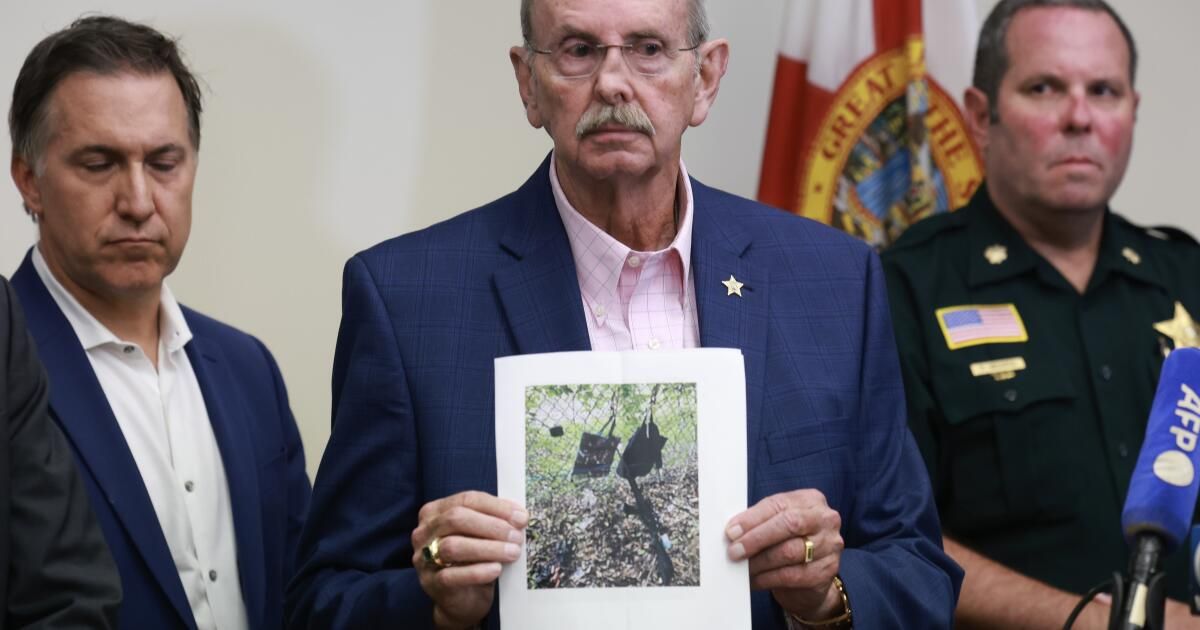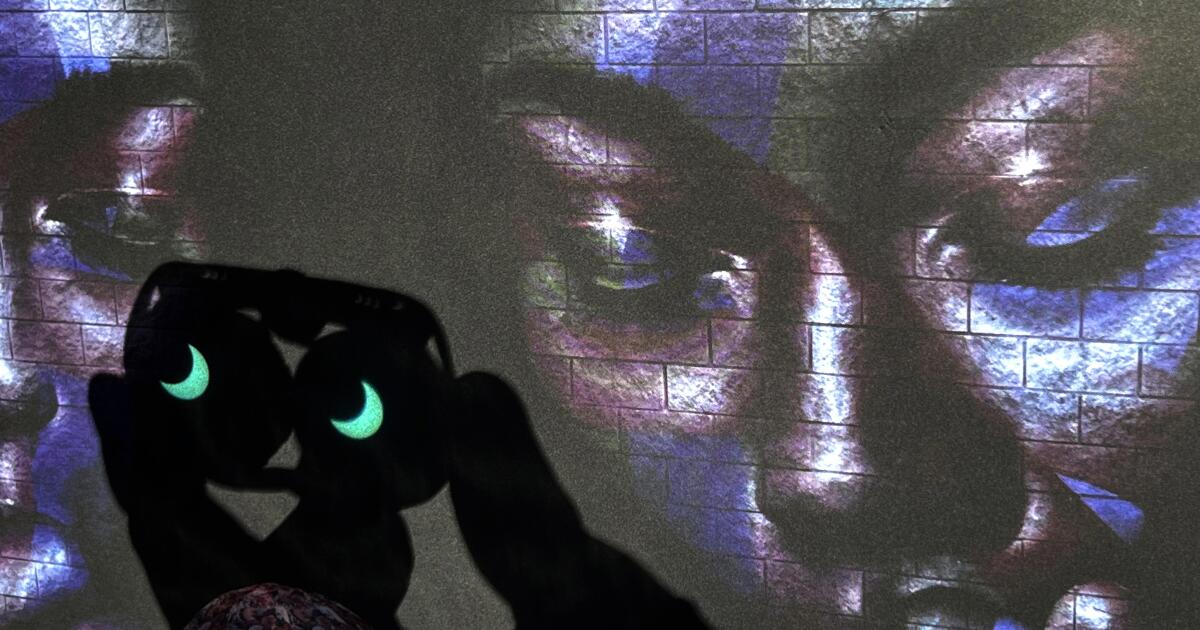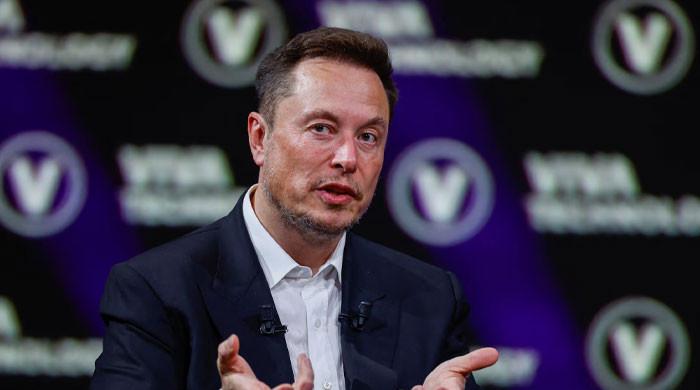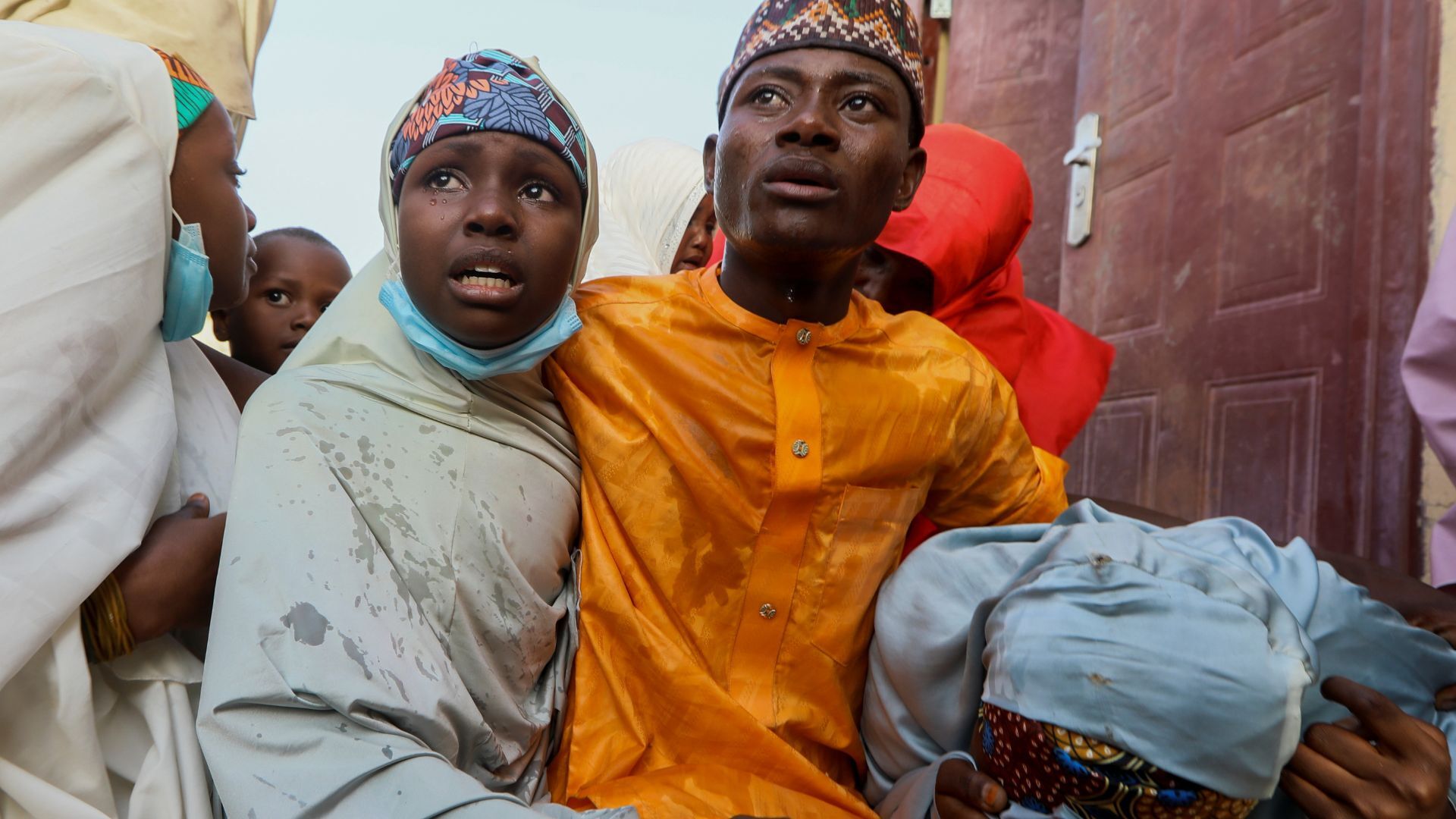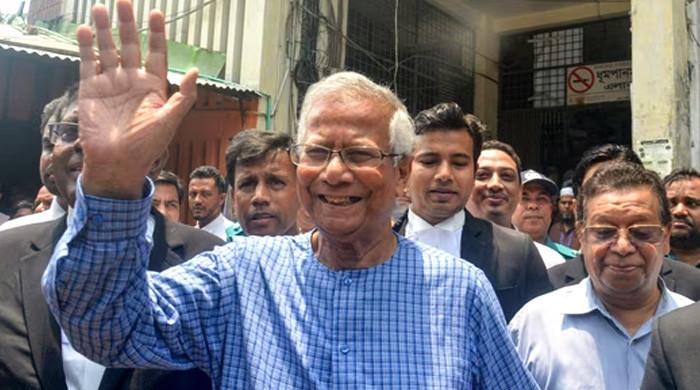A gunman's ability to come within gunshot of former President Trump on Sunday has once again raised the specter of violence in the American political landscape, a development that analysts said was too long-awaited as Trump supporters vowed to make them even more determined to re-elect him.
Just two months after an assassin's bullet severed Trump's ear in Butler, Pennsylvania, the Secret Service shot a man with an assault rifle who had hidden in foliage less than 500 yards from the former president.
The identity and motives of the suspect had not been revealed as of late afternoon, but supporters of the former president immediately rallied around him.
“FIGHT! FIGHT! FIGHT! TRUMP 2024,” wrote one supporter on Trump’s Truth Social platform.
“The greatest warrior,” chimed in Kash Patel, a former Trump Defense Department official.
In another post, Trump appears as a heroic figure, fists raised as he strides across the battlefield. “I AM SAFE AND WELL!” the message read. “Our President Donald Trump.” Praying hands followed.
After the first assassination attempt on Trump in July, his supporters and even some neutral political observers predicted that the violence would give him an insurmountable lead over President Biden.
But a lot has changed since then, most notably Biden's poor performance in the debate, which forced him to drop out of the presidential race and endorse Vice President Kamala Harris. Since then, by many indicators, it has been Harris who has had the momentum in the campaign.
“The height of Donald Trump’s enthusiasm came immediately after the shooting in Pennsylvania, before his own convention,” said Mike Madrid, a Republican political consultant and ardent Trump critic. “Republicans were absolutely convinced they were going to win an election by a landslide.
“This latest incident gives her base yet another reason to show up and maybe for people on her side to say, ‘This is what we’re fighting against,’” Madrid said. “But in terms of the enthusiasm gap, that advantage is still in Harris’ favor and I don’t think that will change.”
Longtime Republican pollster Frank Luntz said: “I was pretty sure that Trump's defiant gesture after he was shot… [in June] “The shooting could boost his re-election. To my surprise, it has not even been the most important event of the campaign. This second shooting incident is also unlikely to have an impact. I don’t see anything other than a war having a significant and measurable impact on a decisive segment of the population.”
Colin Clarke, research director at the Soufan Group, a global intelligence and security consulting firm, said his organization had just held a major summit on political violence that was packed with U.S. government officials and leading academics, whose attendees would not be surprised by Sunday's incident.
Clarke said one of the key takeaways from the conference was that the United States was likely to see “a lot more political violence” in the future given “the general polarization in this country, where everyone is heavily armed and angry.”
“A lot of people are worried about what will happen after November, no matter which candidate wins,” he said.
“The things that make people angry today are ubiquitous, and it’s very easy to get a gun, and easier than many people thought to get close to a president or former president,” he said.
The data shows that far-right violence is the biggest threat, but far-left violence is also a danger, he said.
“There has been a kind of reciprocal radicalization as the far right – those neo-Nazi scoundrels – become more prominent,” he said.
Trump fuels anger and fear daily with his political rhetoric, which did not soften after the first assassination attempt, and Clarke said she worries that will only increase now.
“We're in the middle of all this and I'm very concerned about the increasing rhetoric,” he said.
He said that “a responsible leader should speak frequently about uniting the country rather than dividing it,” but he does not expect that from Trump.
“The overall political climate is more heated and more vitriolic and that’s what sells: it’s part of the social media age, where being moderate doesn’t get you clicks or followers,” he said.
Some Trump supporters say the harsh rhetoric against him, particularly criticism that he is a threat to democracy, has emboldened those who want to harm him.
“Democrats have put Trump’s life in danger by calling him a danger to democracy!” said one follower on Truth Social on Sunday. “He tried to [sic] “On July 13th he was assassinated and the Democrats kept calling him dangerous! Now he just suffered another attempt on his life in West Palm Beach!”
Dr. Garen Wintemute, who directs the Violence Prevention Research Program at the University of California, Davis, has been studying political violence for years. Since 2022, his group has been conducting a large, nationally representative annual survey of Americans' support for political violence and their personal willingness to engage in it.
The group just received its 2024 data, collected before the first attempt on Trump’s life, and Wintemute said it is encouraging because it shows no increase in Americans’ acceptance of political violence starting in 2023.
In 2022, nearly a third of respondents said they believed violence was generally or always justified to advance at least one political goal. Republicans and MAGA-supporting Republicans were more likely than others to think that, as were white supremacists, conspiracy theorists and gun owners.
In 2023, racists, sexists, antisemites, homophobes and transphobes were also more likely to believe that violence was justified to advance political goals.
Still, Wintemute said two-thirds of respondents in 2022 and three-quarters in 2023 rejected political violence. And of those respondents who said they considered it justified by at least one political objective, most said they were not willing to engage in violence.
In the latest data, Wintemute said, “we're not seeing an increase in support for political violence from 2023 to 2024 and there was an increase from 2022 to 2023.”
He said it was “good news” considering that 2024 is an election year and he had anticipated that support for political violence would increase.
For the first time this year, Wintemute said, they asked people how likely they were to engage as combatants if large-scale violence broke out, and again they found “good news”: “The vast majority of people, about 85%, said they were not likely to engage as combatants.”
Almost as important, he said, was the finding that of those who said they would not be combatants, most were not willing to change their minds if urged to do so by family or friends. But among those who said they would be, many said they would be willing to change their minds.
What this shows, Wintemute said, is that “we need to commit to preventing retaliatory violence” by openly expressing our opposition to it.
“Our job is to be a humid ground, so that when a spark of political violence falls, it stops right there and does not start a conflagration, there is no response to it,” he said.
“It is also our job – the job of the vast majority who reject violence – to speak openly about it.”
Another scholar who conducted a survey of Americans and their attitudes toward political violence said more needs to be done to condemn such attacks.
“All political leaders and presidential candidates should immediately condemn political violence,” said University of Chicago political scientist Robert A. Pape, “regardless of whether it comes from the left or the right, rather than waiting for a spiral of escalation to occur.”
Pape surveyed more than 2,000 Americans in late June, before the first assassination attempt on Trump on July 13. The poll found a troubling willingness, across the political spectrum, to say violence was justified to remove political barriers.
The poll, from the Chicago Project on Security & Threats and released in June, showed that 6.9% of Americans (or the equivalent of 18 million adults) believed the use of force was justified to reinstate Trump in the White House. In a separate question, 10% of Americans (or the equivalent of 26 million adults) said they believed political violence was justified to prevent Trump from becoming president again.
Researchers found that millions of those on both sides who said political violence would be justified also owned guns.
“What’s happening, unfortunately, is directly consistent with our polls,” Pape said, “which show that not only do people support the use of force to prevent Trump from becoming president, but many of them are gun owners.”

